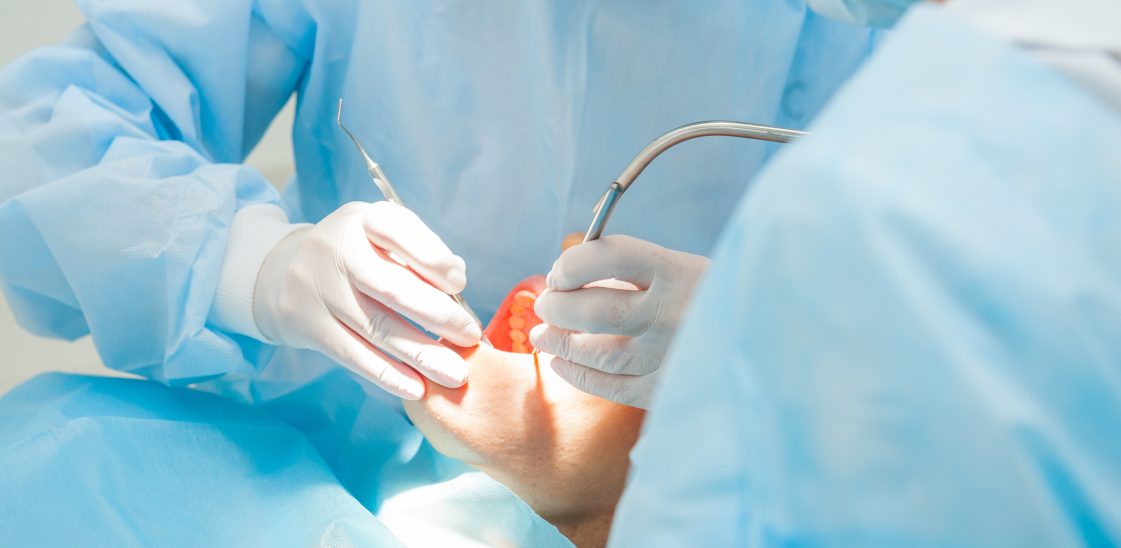
Can you have a reaction to dental anaesthetics?
It’s not uncommon for patients to be nervous about having a dental procedure, especially when anaesthetic is required. Whether you need a mild local anaesthetic or you’re due to go under general anaesthesia for dental treatment, it’s a good idea to be well informed so you know what to expect.
In this blog post, we explore the potential side effects and reactions associated with different types of dental anaesthetics. We also answer the question of whether you can have an anaesthetic during pregnancy.
Does dental anaesthetic make you tired?
You may feel tired depending on which type of anaesthetic you have. To find out more, let’s look at the two common types of anaesthetic used in dentistry.
Local anaesthetic
If you’re having a straightforward dental procedure, you’ll usually be given a local anaesthetic to numb the affected area of your mouth. This is to make sure that you don’t feel any pain while your dentist performs your treatment.
Local anaesthetics tend to be short-lasting and they don’t involve any loss of consciousness. They are very safe medicines and significant side effects are uncommon.
Common minor side effects of local dental anaesthetic include:
- discomfort, bruising or bleeding at the injection site
- a tingling feeling as the anaesthetic wears off
Tiredness is not usually associated with local anaesthetic. However, some people may experience temporary dizziness, headaches, numbness or shivering. These side effects are usually short-lasting.
Very rarely, people can experience allergic reactions or severe adverse reactions to local anaesthetics, such as seizures or cardiac arrests. However, such scenarios are extremely uncommon.[1]
General anaesthetic
Some people may need to have a general anaesthetic during their dental treatment. You may have this type of anaesthesia if your surgery will be long or complex, or if you have a dental phobia, for example.
It’s perfectly normal to feel tired after having a general anaesthetic. In fact, you may feel fatigue for up to 48 hours after your procedure.
Other common side effects of general anaesthetic include:
- nausea and/or vomiting
- feeling cold and shivery
- dizziness
- confusion
- memory loss
- bruising or soreness in the injection or cannula site
- sore throat (from breathing apparatus)
These side effects are usually temporary and normally occur straight after your surgery.
General anaesthetic does carry some more serious risks, however these are rare.
Serious risks include:
- an allergic reaction to the medicine
- waking up during your operation
- death
It should be stressed that these complications and reactions are very rare. You anaesthetist will talk to you about the risks you face before your surgery.
You may be advised to stop smoking, abstain from alcohol or lose weight before your operation to reduce your chances of serious complications.[2]
Can you drive after dental local anaesthetic?
It’s normally fine to drive straight after having local anaesthetic. Your dentist may keep you in the surgery for a few minutes after your treatment to make sure you are feeling well before you leave but most people are usually fine to go.[1]
If you have general anaesthetic however, you will need to avoid driving or cycling for 48 hours after your procedure. You should arrange for someone else to drive you home after your surgery.[2]
Strong painkillers can also hamper your ability to drive so if you’ve had these as part of your treatment, you should not get behind the wheel until they have fully worn off.
Can you have dental anaesthetic when pregnant?
If you are pregnant, you may be advised to avoid non-essential dental treatment until after your baby is born. If treatment must be performed, dentists often aim to do it in the second trimester. This guidance exists due to a lack of evidence around the safety of anaesthetics in pregnancy.
However, studies do suggest an increased risk of miscarriage when general anaesthesia is given in the first trimester of pregnancy. Local anaesthetics, on the other hand, are generally considered safe in pregnancy.[3]
If you are pregnant or suspect you may be pregnant, you should always inform your dentist so they can provide appropriate advice and treatment for you.
If you need to settle tooth pain during pregnancy, paracetamol is a safe option. It should be noted that ibuprofen is not recommended during pregnancy.[4]
Always remember to pay attention to your dentist’s aftercare instructions after dental treatment. To help avoid the need for surgery in the future, you should make an effort to maintain a good oral hygiene routine. This should include brushing your teeth at least twice a day and using interdental products like DenTek Easy Brushes daily.[5]
Resources:
[1] https://www.nhs.uk/conditions/local-anaesthesia/
[2] https://www.nhs.uk/conditions/general-anaesthesia/
[3] https://www.ncbi.nlm.nih.gov/pmc/articles/PMC5564152/ Lee, Ji Min, and Teo Jeon Shin. “Use of local anesthetics for dental treatment during pregnancy; safety for parturient.” Journal of dental anesthesia and pain medicine vol. 17,2 (2017): 81-90. doi:10.17245/jdapm.2017.17.2.81
[4] https://www.nhs.uk/pregnancy/keeping-well/medicines/
[5] https://www.nhs.uk/live-well/healthy-teeth-and-gums/how-to-keep-your-teeth-clean/




